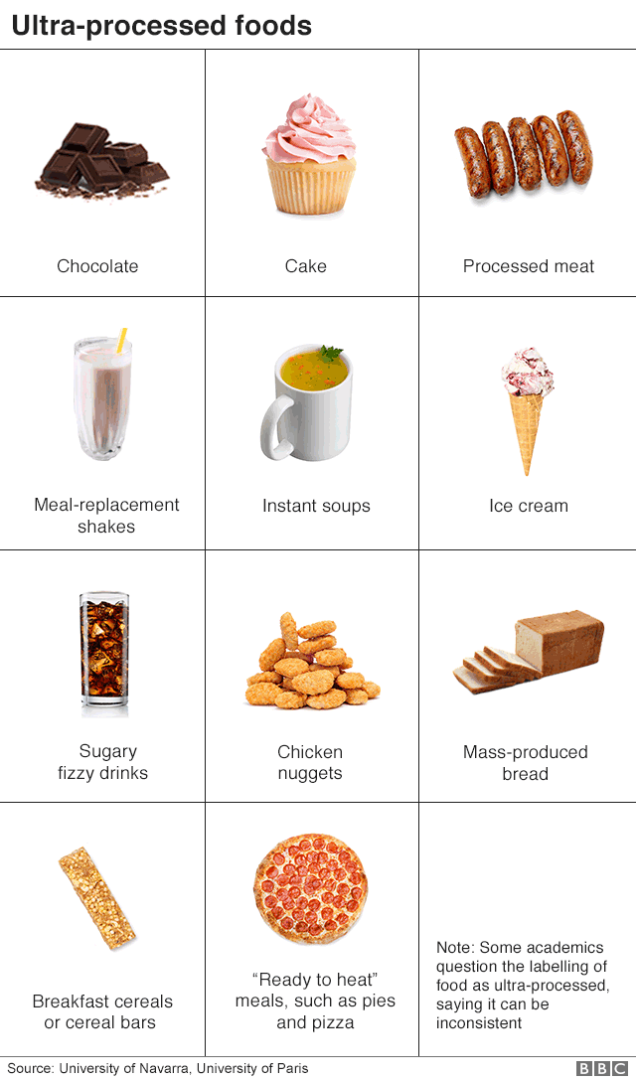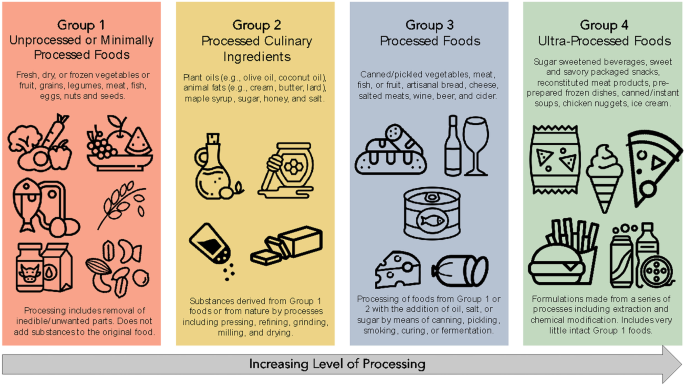Comments
- No comments found

In recent decades, ultra-processed foods have become increasingly prevalent in our diets, dominating the shelves of supermarkets and fast-food chains.
These highly processed food products often contain additives, preservatives, and artificial ingredients, and they are linked to a range of negative health outcomes. In this article, we will explore the harmful effects of ultra-processed foods on our health, delve into the reasons behind their popularity, and discuss strategies for making informed choices to promote a healthier diet and lifestyle.
Ultra-processed foods are typically characterized by their high content of additives, preservatives, refined sugars, unhealthy fats, and low nutritional value.

These foods undergo multiple stages of processing, often involving industrial techniques that strip away natural nutrients and fiber while adding artificial flavors, colors, and stabilizers. Common examples of ultra-processed foods include sugary cereals, packaged snacks, fast-food meals, and sodas.
Studies have linked the consumption of ultra-processed foods to various negative health outcomes. These include an increased risk of obesity, type 2 diabetes, cardiovascular diseases, certain types of cancer, and overall mortality. The excessive amounts of added sugars, unhealthy fats, and sodium in these foods contribute to weight gain, inflammation, insulin resistance, and other metabolic disorders.
Moreover, the low nutritional value of ultra-processed foods often leads to deficiencies in essential vitamins, minerals, and dietary fiber. This can further contribute to poor overall health, weakened immune function, and an increased susceptibility to chronic diseases.
The rising popularity of ultra-processed foods can be attributed to various factors. Busy lifestyles, easy accessibility, aggressive marketing, and relatively lower costs compared to fresh and whole foods all contribute to their widespread consumption. Additionally, the addictive nature of certain ingredients like sugar, salt, and artificial flavors can make these foods highly desirable, leading to a cycle of overconsumption.

While completely eliminating ultra-processed foods from our diets may be challenging, there are steps we can take to make healthier choices:
a) Read Food Labels: Pay attention to ingredient lists and nutrition labels. Avoid products with long lists of additives, high amounts of added sugars, unhealthy fats, and excessive sodium content.
b) Opt for Whole, Fresh Foods: Prioritize whole foods such as fruits, vegetables, lean proteins, whole grains, and legumes. These foods are rich in nutrients and provide essential fiber for a balanced diet.
c) Cook Meals at Home: Preparing meals at home gives you control over the ingredients used and allows for healthier cooking methods like baking, grilling, or steaming.
d) Plan and Prepare: Plan your meals and snacks in advance to avoid impulsive choices. Have healthy, convenient options readily available, such as cut-up fruits, raw nuts, or homemade snacks.
e) Seek Community Support: Engage in community initiatives that promote healthy eating, such as local farmers' markets or cooking classes. Sharing experiences and knowledge can help reinforce healthier habits.
f) Educate Yourself: Stay informed about the detrimental effects of ultra-processed foods on health. Understand the importance of a balanced diet and the long-term benefits of consuming whole, nutrient-dense foods.
While the convenience and allure of ultra-processed foods are undeniable, understanding their harmful effects on health is crucial. By being mindful of our choices, reading labels, and prioritizing whole, fresh foods, we can take steps toward a healthier and more sustainable diet. By making informed decisions and promoting awareness, we can positively impact our own well-being and contribute to a healthier food environment for future generations.
Mihir Gadhvi is the co-founder of illustrake and HAYD. Illustrake is a D2C Enabler and offers Performance Marketing, Retention Marketing, and Content Creation Services. HAYD is a brand New, homegrown fashion line that aims to make clothing easy for us without taxing our planet. Although the concept is quite known now, HAYD wants to accomplish sustainability by reducing its impact on the environment with safe and fair manufacturing.
Leave your comments
Post comment as a guest